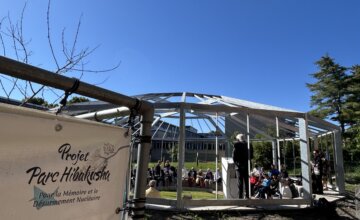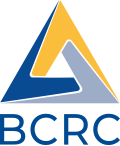Vous êtes :
Nouvelles de l'université

InstitutionInternational
Journée internationale contre l’homophobie, la transphobie et la biphobie: l'UMONS réaffirme son engag…
16 mai 2025
Le 17 mai, Journée internationale contre l’homophobie, la transphobie et la biphobie, rappelle l’importance de promouvoir le respect des droit…

InstitutionInternational
Pour une Union européenne guidée par ses valeurs – en paroles et en actes
16 mai 2025
À quelques jours du Conseil des Affaires étrangères de l’Union européenne, les universités belges francophones et néerlandophones appellent, v…

InstitutionPartenariatsVie culturelle et sportive
Le parc Hibakusha de l’UMONS renaît pour porter un message de paix
12 mai 2025
Lieu de mémoire dédié aux survivants des bombardements d’Hiroshima et de Nagasaki, le parc Hibakusha, situé sur le campus de la Plaine de Nimy…
L'UMONS en quelques données clés
-
2000Enseignants, Scientifiques, Chercheurs et agents techniques et administratifsL’UMONS en bref
-
11.000Etudiants7 Facultés et 3 Ecoles
-
1000Chercheurs10 Instituts de Recherche
-
> 150Formations universitaires du Bachelier au DoctoratL'offre de formations
Bien + qu'une
Université

Agenda & événements
Aujourd'hui
- 26 avr. 2023
- 16 sept. 2024
Formation Interprète et médiateur·rice de services publics - Niveau 2 - 2024-2025
Colloques & séminaires - 23 oct. 2024
- 22 nov. 2024
Formation Interprète et médiateur·rice de services publics - Niveau 4 - 2024-2025
Extension UMONSBâtiment Rosa Parks
Bientôt
- 21 mai 2025
C2 : La connaissance de soi: un projet en cohérence avec soi
Accompagnement et Orientation Etudiants | AOE - 21 mai 2025
Défense publique de thèse de Doctorat de Monsieur Calvin ZOGNING
Défenses de thèseCampus Polytech - Bâtiment Dolez - Salle Macquet - 21 mai 2025
Défense publique de thèse de Doctorat de Monsieur Kévin EL HADDAD
Défenses de thèseCampus Polytech - Bâtiment Dolez - Salle Macquet - 22 mai 2025
CIRP CMMO 2025
Colloques & séminaires - 22 mai 2025
CIRP CMMO 2025
Colloques & séminaires







